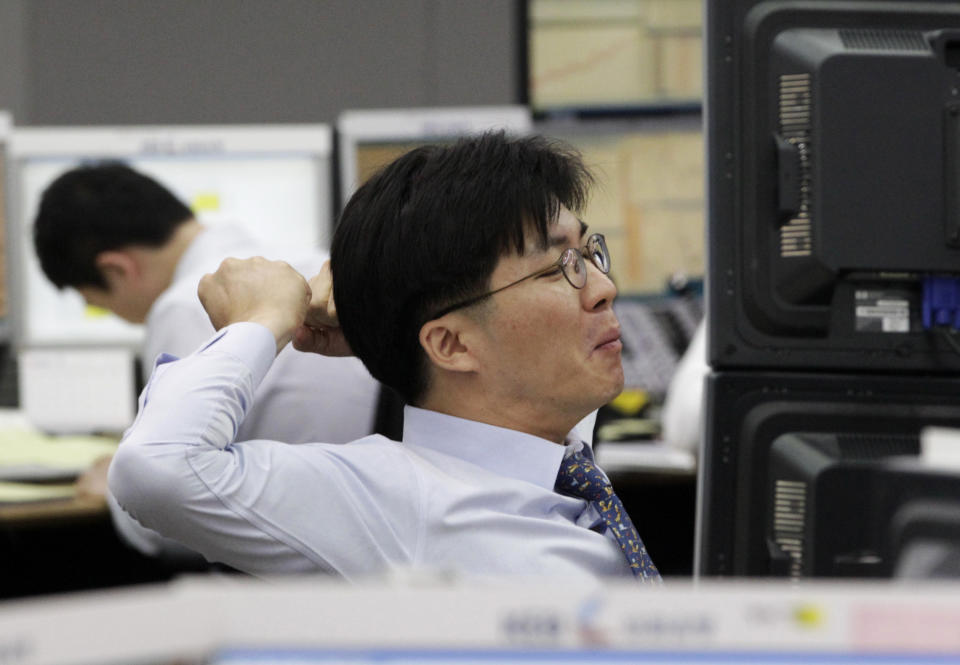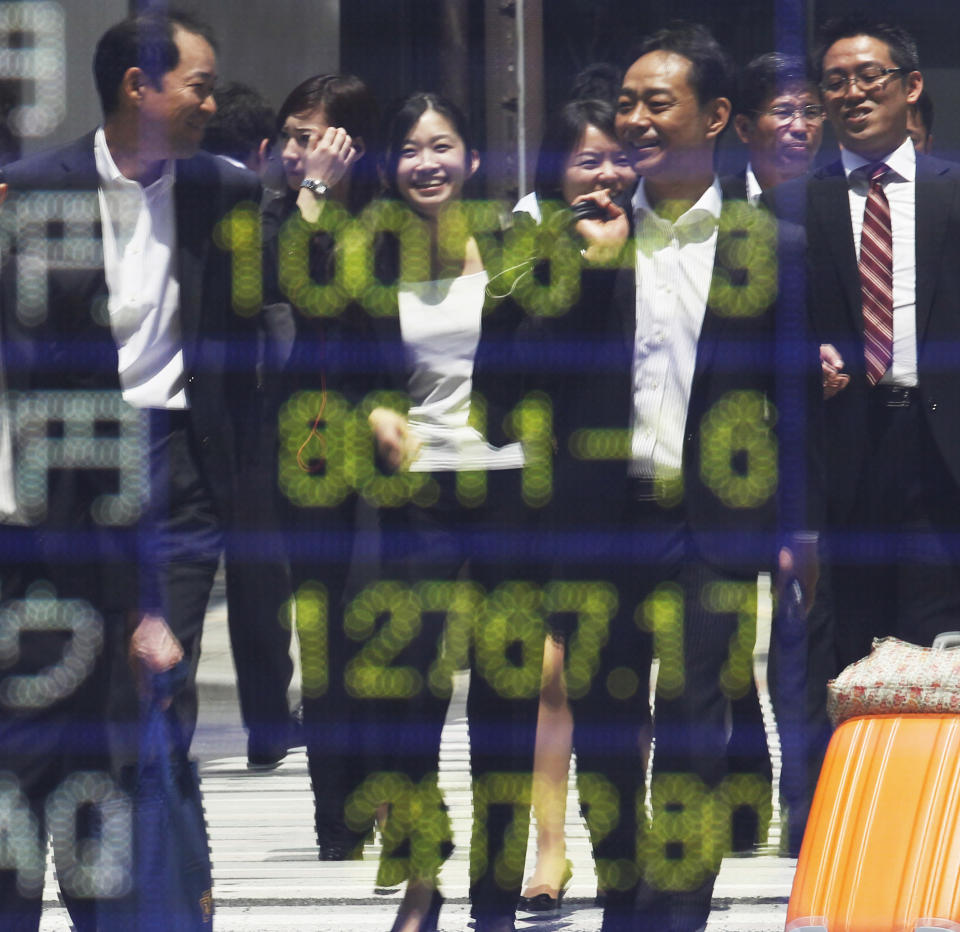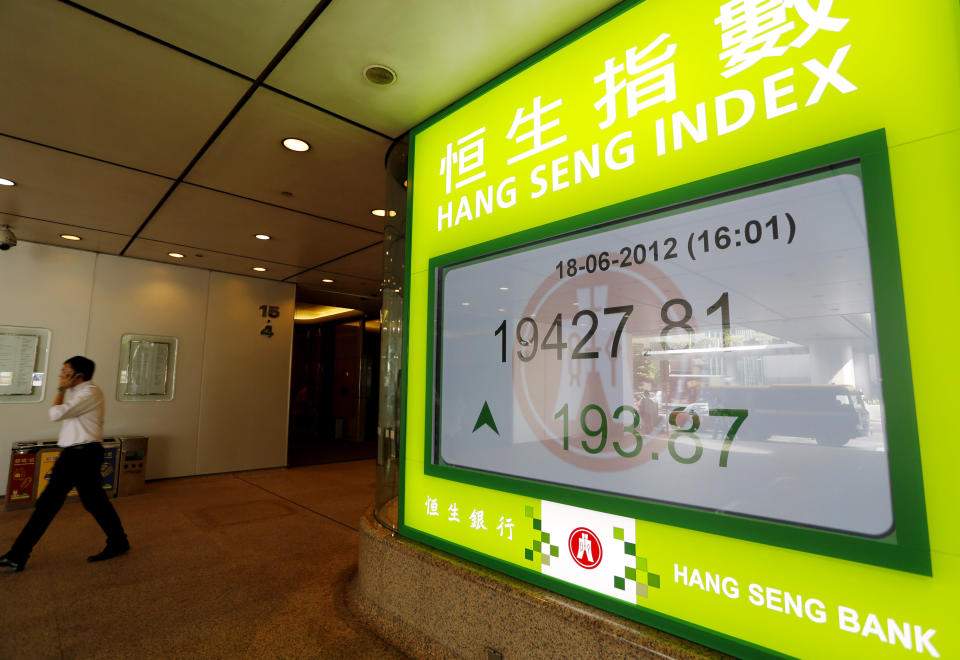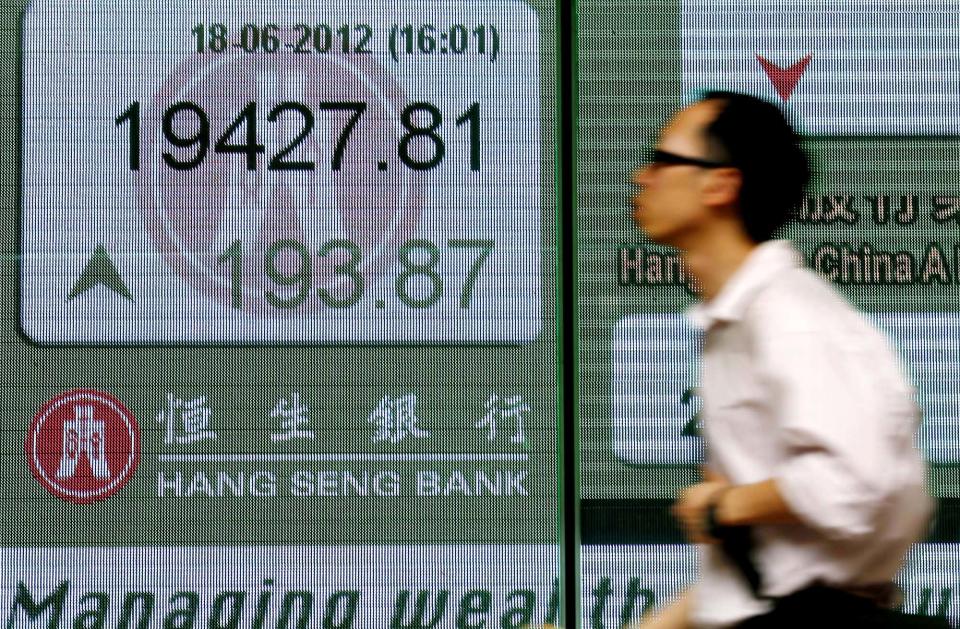Greek vote boosts Asia stocks but Europe muted
PARIS (AP) — European stock markets briefly rose Monday after elections in Greece eased fears of global financial turmoil, but any euphoria wore thin by midday — a reminder that the crisis shaking the 17 nations that use the euro was far from over.
A narrow victory by Greek conservatives, who favor upholding an austerity program that their country entered into in exchange for an international bailout, relaxed fears that Greece would be forced out of the euro. A return by Greece to its old currency, the drachma, would have caused turmoil across Europe and beyond.
European stocks were slightly higher by midday. Britain's FTSE 100 rose 0.3 percent to 5,497.42 while Germany's DAX added 0.7 percent to 6,272.40. France's CAC-40 gained 0.3 percent to 3,095.
Futures augured a lower opening on Wall Street. Dow Jones industrial futures fell 0.3 percent to 12,672 and S&P 500 futures lost 0.2 percent to 1,334.50.
Analysts were quick to underline that while Greece's election result avoided immediate catastrophe, Europe's underlying crisis was as bad as ever.
"This reduces the danger of an immediate collision between the troika and Greece...though breaches of agreed bailout terms may well test Greece's European partners in the time to come and the risk of a euro exit remains high," Investec Financial Markets analysts wrote in a note to clients Monday.
VTB Capital analyst Neil MacKinnon noted that Greece "remains in a debt trap and the economy is still stuck in a depression," and concluded "ultimately the scenario of a Greek exit from monetary union remains in place.
On Sunday, pro-bailout parties in Greece won enough seats to form a coalition government. Greece has been dependent on rescue loans to operate since May 2010, after it was shut out of international markets following years of profligate spending and falsifying financial data.
The country is mired in a fifth year of recession, with unemployment spiraling above 22 percent and tens of thousands of businesses shutting down.
Greece had to agree to austerity measures to get its bailout. Measures included deep spending cuts on everything from health care to education and infrastructure as well as tax hikes and cuts in salaries and pensions. Anger at the measures has sent Greeks into the streets in frequent strikes and protests, some of them violent.
Some analysts said the election results could overstate the willingness of Greeks to embrace austerity.
"Overall, the Greek election result, while welcome, does not imply that the Greek people are embracing the tough reforms tied to the bailout package. It merely meant that fear overruled anger," analysts at DBS Bank Ltd. in Singapore wrote in a market commentary.
No one is sure how bad a Greek exit from the euro would have been. Greece would almost have certainly defaulted on its debt, triggering losses for European banks that own its government bonds. The outcome of the election, however tenuous, gives Greece a chance to breathe life into its moribund economy.
"It will be tough, but Greece will survive because I think the tourist industry and the agriculture sector will help it recover from its dire straits right now," said Francis Lun, managing director of Lyncean Holdings in Hong Kong.
Asian stocks greeted the developments enthusiastically.
Tokyo's benchmark Nikkei 225 index closed up 1.9 percent to 8,721.02. Hong Kong's Hang Seng rose 1 percent to 19,427.81. Australia's S&P/ASX200 added 2 percent to 4,136.90 and South Korea's Kospi climbed 1.8 percent at 1,891.71.
China's benchmark Shanghai Composite Index added 0.4 percent to 2,316.05. The Shenzhen Composite Index gained 1.1 percent to 964.71.
The euro was slightly lower at $1.2628 from $1.2637 late Friday in New York. The dollar rose to 79.13 yen from 78.71 yen.
Benchmark oil for July delivery was down 25 cents to $83.80 per barrel in electronic trading on the New York Mercantile Exchange. The contract rose 12 cents to end at $84.03 a barrel in New York on Friday.





